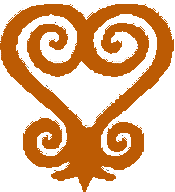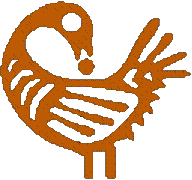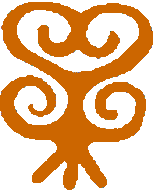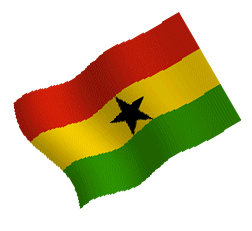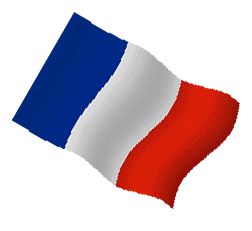
History
Forty thousand years ago people migrated into the area from the north and east. The early inhabitants were nomads. They raised cattle, planted crops and moved seasonally.
Ghana takes its name from the ancient Ghana Empire that controlled the gold and mining trade from the 4th to the 10th century A.D., and was located, at its richest period of 11th century, between the middle valley of Senegal river and the Niger curve. Actually, it was quite far from today's Ghana. That name was chosen in memory of migrants from the ancient Ghana Empire who moved towards South and East to where is Ghana nowadays.
However, the Gold Coast also possesses a rich past. The Kintampo archaeological site shows evidence of some ancient type of agriculture and animal husbandry as from the second millennium before our era. Later, the confluence of the black and white Volta river valleys became the crossroads of commercial itinerary that lead. As from the 14th century gold mining and trading became of capital importance in the development of the Akan kingdoms. It was around Kumasi that this industry led to the development of the powerful Ashanti kingdom.
In the late 1400s, the Portuguese came to the west coast of Africa searching for gold. They named the area Costa d'Oro, the Gold Coast, and built forts along the coast to discourage other Europeans from coming near. The lure of gold and the demand for slaves led Britain, Holland, Denmark and Sweden to occupy inland Ghana. By the early 1800s, the British had become the most important European power on the Gold Coast.
They moved inland, and declared Ghana a British colony in 1874. But the Ashanti people resisted, and were finally defeated in 1901.
The British ruled Ghana indirectly, by allowing chiefs and local leaders to be agents of the colonial administration. During this period, transportation was upgraded for economical and industrial purposes and a harbour was built at Takoradi. After World War II, the Ghanaians began opposing British rule.
 On
the 6th
of march 1957, Ghana become the first colony of sub-Saharan Africa to
become
independent. Leader of the country since 1951, Kwame Nkrumah proclaimed
the republic in 1960, still part of the Commonwealth, and was elected
president. Nkrumah
declared,
"The independence of Ghana is meaningless unless it is linked with the
total liberation of Africa." He wanted his country to lead all African
nations against colonialism. Three years later a republican
constitution was
adopted. In 1966,
Nkrumah was
overthrown in a military coup provoked by growing discontent
towards the
evolution of adverse political and economic situations.
On
the 6th
of march 1957, Ghana become the first colony of sub-Saharan Africa to
become
independent. Leader of the country since 1951, Kwame Nkrumah proclaimed
the republic in 1960, still part of the Commonwealth, and was elected
president. Nkrumah
declared,
"The independence of Ghana is meaningless unless it is linked with the
total liberation of Africa." He wanted his country to lead all African
nations against colonialism. Three years later a republican
constitution was
adopted. In 1966,
Nkrumah was
overthrown in a military coup provoked by growing discontent
towards the
evolution of adverse political and economic situations.
A series of military governments intersected with civil regimes followed. Some months before democratic elections which was to be held in 1979, a group of soldiers led by the Flight Lieutenant Jerry Rawlings took power, promising to wipe out corruption from the Ghanaian society. Rawlings gave the power back to civilians in september 1979, and the Dr Hilla Limann (1934-1998) was then elected president. Yet, the economic situation getting worse, Rawlings took power again in a coup in 31st december, 1981.

In April, 1992, a new Constitution was approved by referendum, which instituted a multi-party parliamentary democracy. Jerry Rawlings, who stood as a civilian, won the presidential elections, and officially reached the presidence in January 1993. Il then proclaimed the IVth Republic. In 1994, hundreds of people died in inter ethnic fights. Jerry Rawlings won the presidential election that followed in 3rd November, 1992 and proclaimed the in January, 1993 when he assumed the presidency. During the general election of December, 1996 Rawlings was re-elected president of the Republic and the party, the National Democratic Congress (NDC), won the absolute majority of seats in the National Assembly. These elections, the first of its kind of which Ghanaians could pronounce on the policy of a government that has come to an end of its mandate, were considered free and fair by the international observers, and marked a step forward in the country’s ‘infant’ democracy.

John Agyekum Kufuor succeeded to Jerry Rawlings, and ruled from December, 2000 to December, 2008.
The following elections brought NDC back to power, with its leader John Atta Mills elected as president of Ghana. John Atta Mills died suddenly on July 24th, 2012, at the age of 68. His vice-president took over and finally got elected as the new president of Ghana in December 2012.
